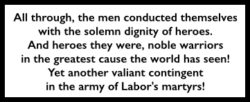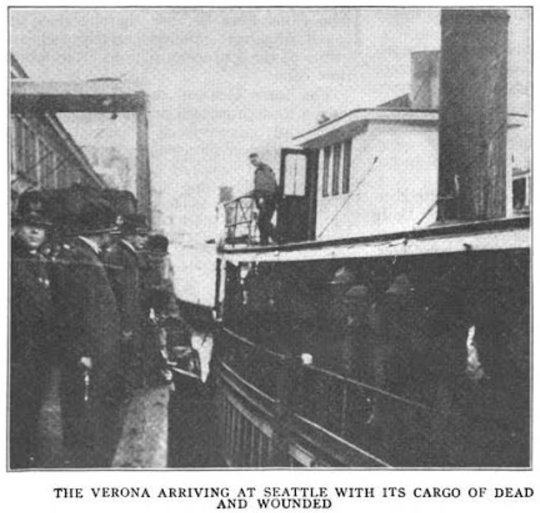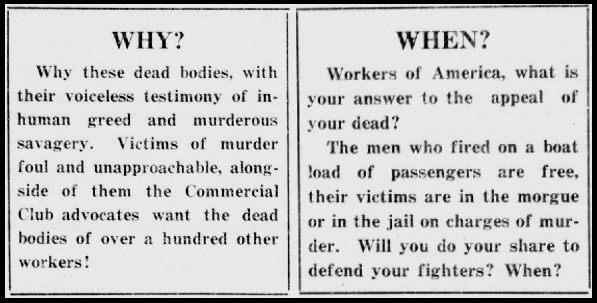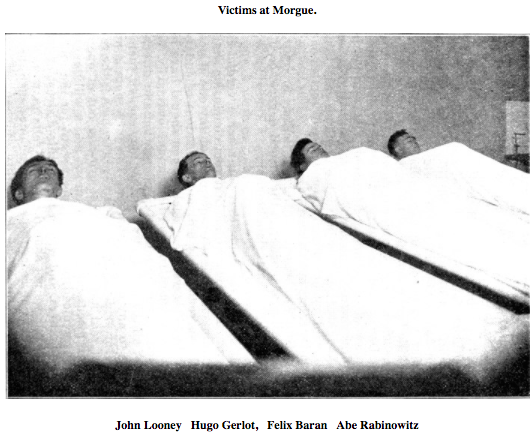
Hellraisers Journal, Friday January 19, 1917
Seattle, Washington – Pamphlet Tells of “Everett’s Bloody Sunday”
On Wednesday we presented one of two pamphlets, published by the Everett Prisoners’ Defense Committee, which told the actually story of events leading up to the Everett Massacre. Yesterday we featured part one of the second pamphlet which reveals the horrific vigilante terror at Beverly Park just a few days before the Massacre. Today we present part two of the second pamphlet which documents that terrible day in Everett, now known far and wide as “Bloody Sunday.”
EVERETT’S BLOODY SUNDAY
———-THE TRAGEDY THAT HORRIFIED THE WORLD!
———-A STORY OF OUTRAGED TOILERS
[Part Two.]The Day of Blood.
It was decided to hold a meeting in Everett on Sunday, November 5th, at 2 p. m. A big attendance of friendly citizens was promised by local sympathizers. A handbill was widely distributed in both Everett and Seattle which read as follows:
CITIZENS OF EVERETT!
Attention!A meeting will be held at the corner of Hewitt and Wetmore Aves., on Sunday, Nov. 5th, 2 p. m. Come and help maintain your and our constitutional rights.
-Committee.
The above was given out some days before the event. It certainly does not appear as though desperadoes, plotting a dark deed of murder, would advertise the fact by means of handbills! Yet, the bosses would characterize this simple announcement of a peaceful meeting as “inciting to riot” and “intent to resist lawful authority!”
The steamer “Verona” left the Seattle docks with some 250 men on board. About forty left later on the S. S. “Calista,” but never reached their destination.
The men aboard the “Verona” had all paid their passages in the regular manner, entitling them to a landing in Everett. They were cheerful on the boat, and full of enthusiasm. The conquest of free speech seemed assured. They never for a moment considered that the Everett mob,-at whose hands they had previously suffered such grievous outrage,-would dare to continue their criminal tactics in the light of day and before a host of conscientious citizens.
Therefore, they sang, that day on the boat, and made merry. They were class-conscious men, enlightened workingmen who believed in the glorious future of their class and who were willing to give their all in the great fight of the workers for bread, happiness and liberty. Little did they think, that bright morning, that the hour was so near in which some of them would be called upon for the supremest of all sacrifices,-life itself.
There were men of many trades and callings on the boat: laborers, loggers, railroad clerks, seamen, farm-hands; members of the Longshoremen’s Union, the I. W. W. the Truckmen, the Seamen’s Union and others. But they were all united in the one common desire: the desire to see established free expression of the voice of labor.




